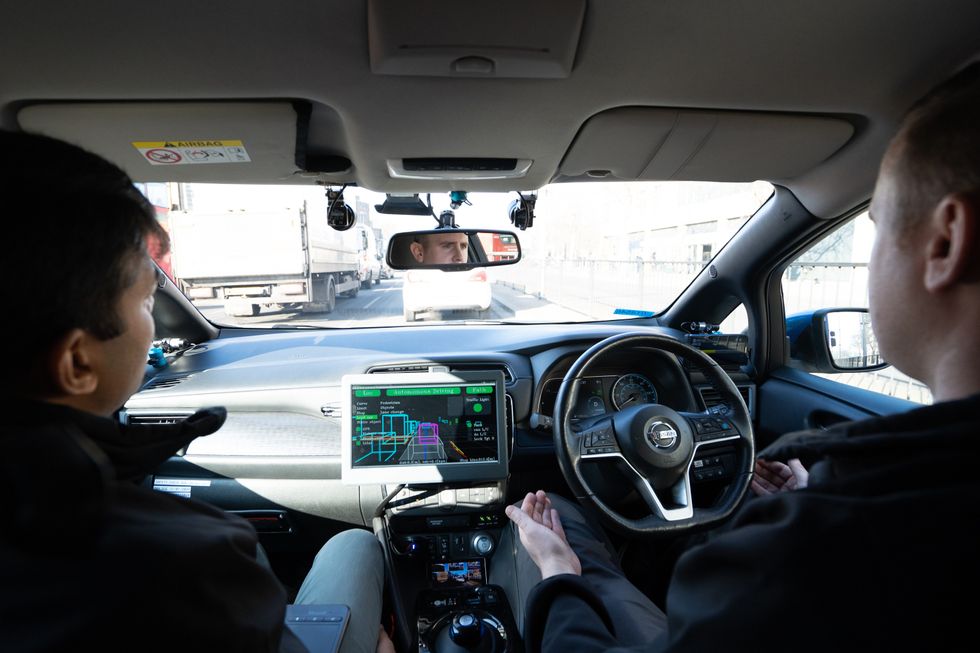One in four UK drivers have shared their fear over the use of artificial intelligence (AI) in vehicles with many left uncertain about its benefits.
It comes after a survey revealed that UK drivers remain most sceptical about AI in vehicles across Europe including the impending automated vehicle rollout.
The report found that more than a quarter (26 per cent) of British drivers remain unconvinced about the benefits of AI in cars.
This compares with other countries like the US which has similar concerns (26 per cent) and Germany (25 per cent) while countries in Asia are more accepting, particularly in India (82 per cent) and China (77 per cent).
Do you have a story you’d like to share? Get in touch by emailingmotoring@gbnews.uk
Drivers remain concerned about how car manufacturers will use the data collected by AI devices
GETTY
AI-powered systems have been used in cars for various purposes, the most common includes detecting potential hazards, helping automate parking manoeuvres and predict potential maintenance needs.
Jamie Hamilton, automotive partner and head of electric vehicles at Deloitte, said: “Building trust in AI technology is paramount, especially in a market like the UK where consumers are expressing significant reservations.”
However, Hamilton noted that while AI promises to “potentially revolutionise” the car industry, the findings also highlight a crucial need for “greater consumer education and engagement”.
Meanwhile, across the globe the report highlighted similar reservations from UK consumers on autonomous vehicles with India (63 per cent) showing greater worry than the UK (52 per cent) and US (52 per cent).
Germany (36 per cent), Japan (41 per cent), and China (43 per cent) also revealed reservations about the use of automated vehicles.
Last year, the Automated Vehicles Act 2024 passed through Parliament with hopes it will add greater regulation of automated vehicles on roads and in other public places.
Sarah Noble, automotive partner and consumer supply chain lead at Deloitte, added: “Rigorous testing and clear demonstrations of safety protocols will be crucial to building public trust and addressing consumer anxiety.
“Only then will the tangible benefits of this technology be recognised in a way that resonates with UK drivers.”
One of the main reasons for concerns around AI has been highlighted as a lack of trust in car manufacturers when it comes to managing connected vehicle data, the survey revealed.
However, when asked about sharing their vehicle data with manufacturers for security and safety purposes, UK consumers were more willing with 65 per cent agreeing to pay more towards anti-theft tracking services.
Meanwhile, almost six in 10 would pay for emergency assistance services and half of people would fork out towards services for the automatic detection of vehicles and pedestrians.
Noble added that while there is general trust with car manufacturers and driver data, “a sizable portion, particularly in key markets like the UK, remain wary”.
LATEST DEVELOPMENTS:

The Automated Vehicles Act will come into force in 2026
PA
She added: “Our research also shows UK drivers are willing to trade data for security and safety. They see value in features like anti-theft tracking and emergency assistance, even if it means sharing some personal information.
“This presents a real opportunity for manufacturers to build trust and demonstrate the tangible benefits of connected car technology.”
